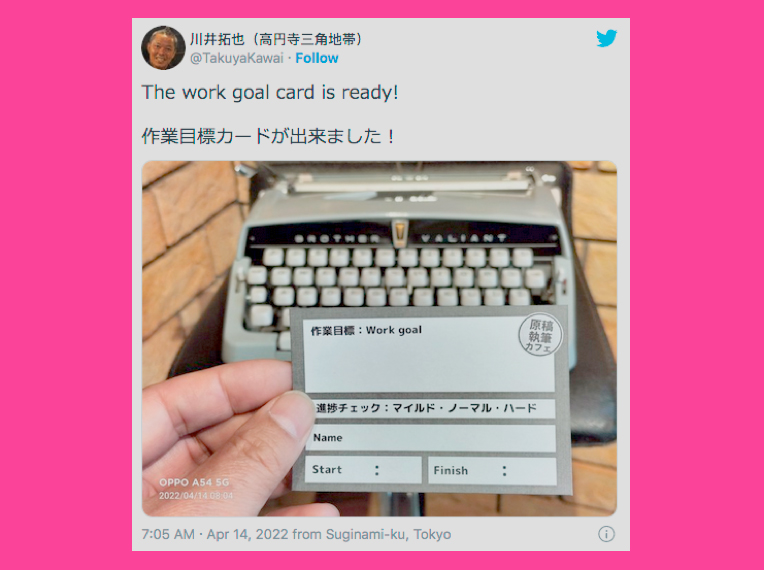
Procrastination is a universal phenomenon.
All of us have had the experience of watching videos instead of writing an essay. We can all relate to telling ourselves, “I’ll do it tomorrow”.
The problem is our brains are wired for comfort. We’ll try to do everything we can to avoid experiencing pain and discomfort. But through our avoidance behaviour, we ultimately create more pain and suffering for our Future Selves.
You can avoid working on a project, but eventually your Future Self will have to pay the price.
As Dr Benjamin Hardy states in his book Be Your Future Self Now:
“The more you put your Future Self in debt in terms of health, learning, finances, and time, the more painful and costly will be the eventual toll. There will be a lot of interest to pay if you continually accrue debt.”
This is why it really helps to cultivate habits and develop systems that help you get started with your work early (well before the deadline).
Over the last few months, I’ve come across several novel and effective ways people are combatting procrastination around the world. I write about each of these below.
1. The Anti-Procrastination Café (Tokyo, Japan)
The Manuscript Writing Café is a place where writers go to avoid distractions and meet their writing deadlines.
This is a disciplined environment where the owner Takuya Kawai won’t tolerate socialising over drinks. As Kawai states in a social media post:
“The Manuscript Writing Cafe only allows in people who have a writing deadline to face! It’s in order to maintain a level of focus and tense atmosphere at the cafe! Thank you for your understanding.”
In order for this café to run smoothly, Kawai has established a set of rules writers must follow upon entering.
Here’s how it works:
When you enter the café, you commit to a specific goal (how many words you want to write) and a time you plan on finishing. You write this down on a goal card.

You then select from three levels of progress checks:
1) Mild: You get a progress check at the time of payment
2) Normal: You get a progress check every hour
3) Hard: Staff frequently stand behind you and watch you working.
You can’t leave the café until you finish your writing goal.
Once you complete your writing goal, your goal card is stamped with a cute Japanese stamp and displayed on the wall with all the other completed goals.
Let’s unpack the psychology of how this clever café works . . .
Besides the fact you are working in a focus friendly environment away from all your usual distractions, it helps that you are in the company of other people who are also working towards clear goals.
When a staff member stands over your shoulder, you don’t want them to see you scrolling through social media or checking your email. You want them to look at you and think, “Oh wow! This person is super focused and on a roll. Look at them go!”
If you go to this café enough times and achieve a feeling of success after completing each writing goal, your identity will begin to shift. Instead of seeing yourself as someone who procrastinates, you start to see yourself as the sort of person who just gets on with doing the work.
It also costs money to be there. It is 130 yen ($1.30 AUD) for the first 30 minutes and then it increases to 300 yen ($3 AUD) per hour. Being charged a fee provides incentive to just get on with doing your work (procrastination equals parting with your hard earned money).
The owner insists his café is a supportive environment and his tactics are not heavy handed. He states:
“As a result, what they [the writers] thought would take a day was actually completed in three hours, or tasks that usually take three hours were done in one.”
You may not have an anti-procrastination café in your neighbourhood, but there’s nothing to stop you from setting up your own writing café experience and applying the same or similar rules.
This is what a group of PhD students and I did to help us write our theses (you can read more about this here).
2. Nights Against Procrastination
This event is run by a number of universities around the world. Students are encouraged to come along with a work project they have been avoiding.
Educators, mental health nurses, therapy dogs, librarians, and academic coaches are on standby, ready to help students tackle their specific procrastination issues.

For instance, if a student is procrastinating with writing an essay because they don’t know how to write an academic essay, they can get help from an academic coach.
If a student is procrastinating because they get easily distracted, they can receive coaching on various strategies, such as the Pomodoro Technique, that will help them to deal with distractions and focus their mind.
When it comes to procrastination, there is no one size fits all approach. Nights Against Procrastination are popular and effective because they offer students a smorgasbord of different strategies and solutions to combat procrastination.
3. Beeminder app
The Beeminder app is a commitment device/goal setting app that helps you stay on track with achieving your goals. Here’s how it works:
You commit to a goal (e.g., Read 70 pages per week). You set a daily target (e.g., 10 pages per day). If you get derailed from achieving your goal, you get stung with a charge from your credit card (you pledge the particular amount).

It sounds harsh but this app is your accountability buddy. There’s a real consequence associated with not engaging in the behaviour. This can give you the extra motivational boost you need to make a start.
The great thing about this app is it integrates with other apps and programs (e.g., Fitbit, Garmin, Duolingo, and RescueTime). Once you set up these integrations it’s a lot harder for you to weasel out of your goals. The data gets automatically imported into the Beeminder app and the data speaks for itself. You either achieved your daily goal or you didn’t.
If you’re going to use this app, you need to be really clear about your goals. And you need to be serious about achieving them because let’s face it, losing money hurts.
4. Cave Days
Cave Days are online focused work sprint sessions that take place on Zoom. You’re instructed to leave your camera on, put your phone away, close any unnecessary tabs, and work for 45 – 52 minutes. Before your work sprint session, you set a goal for what you want to accomplish.

These work sessions are facilitated by a ‘Trained Cave Guide’. The Cave Guide doesn’t tell you the exact time the session will go for because they don’t want you to be watching the clock the entire time. At the end of each work session, your Cave Guide will facilitate short break activities.
If you want to check this out, you can register for a free 7 day trial to see if this work method works for you.
To sum up
There are many different ways you can combat procrastination. But be careful – searching for the perfect solution can become a form of procrastination!
The thing is there is no perfect solution. When it comes to doing difficult work, here’s what I find makes a difference: having your phone away from your body (preferably in another room), being clear on what you need to do, taking a deep breath, and getting started with a small task (even if you don’t feel like doing it).
